

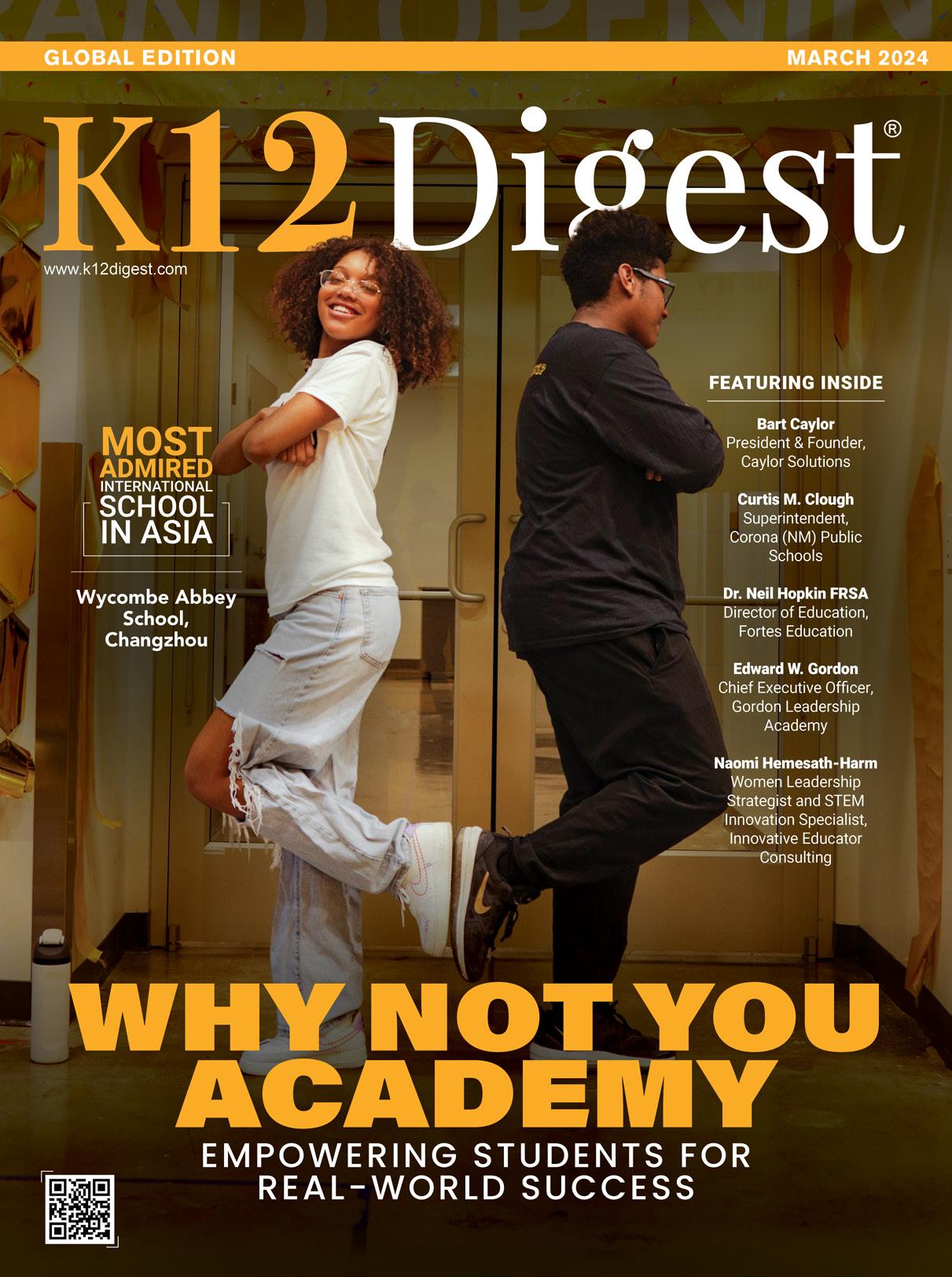


Managing Editor
Sarath Shyam
Consultant Editors
Dr. John Andrews
Emma James
Andrew Scott
Naomi Wilson
Stanly Lui
Joseph Alex
Art & Design
Charlie Jameson
Jennifer Anderson
Alice Smith
Sales & Marketing Enquiry admin@K12digest.com
Monica Davis
Anna Elza
International Partnerships
admin@K12digest.com
Americas
16192 Coastal Highway, Lewes, DE 19958, USA
Europe
27, Old Gloucester Street, London, WC1N 3AX, UK
Middle East & Africa
P.O. Box 48299, Dubai Silicon Oasis, Dubai, UAE
Asia-Pacific
Ramanashree Arcade, 18 MG Road, Bangalore – 560001, India
Free Subscription
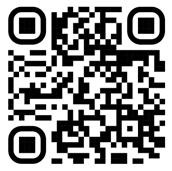
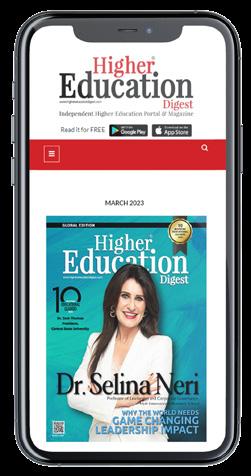


K12 Digest is a digital magazine published by Connecta Innovation Private Limited. All rights reserved. The opinions expressed in the content and pictures provided are those of the authors. They do not purport to reflect the opinions or views of the Connecta Innovation Private Limited or any of its members and we do not assume any responsibility. The publisher does not assume any responsibility for the advertisements, its content, pictures, and all representation of warranties made in such advertisements are those of the advertisers and not of the publisher. K12 Digest is a Free Subscription digital magazine strictly not for sale and has to be strictly for internal private use only. Publisher does not assume any responsibility arising out of anyone printing copy of this digital magazine in any format and in any country and all matters related to that.
K12 Digest March 2024 4
FEBRUARY 2024 March 2024 Vol - 5 Issue - 4
The Role of Preparatory Schools in 2024
In a world marked by rapid technological advancements, shifting socio-economic landscapes, and complex global challenges, the role of preparatory schools in shaping future leaders has never been more crucial. These institutions serve as the cornerstone of education, providing students with the tools, skills, and values necessary to thrive in an ever-evolving society.
In this issue of K12 Digest, we delve deep into the transformative power of preparatory schools and their profound impact on shaping the leaders of tomorrow. Our cover story shines a spotlight on Why Not You Academy (WNYA), an innovative and inclusive educational institution at the forefront of educational excellence in 2024.
WNYA takes center stage as we explore its visionary approach to education, where creativity, innovation, and inclusivity converge to empower students to reach their full potential. At the heart of WNYA’s mission is its commitment to providing students with diverse opportunities for creative expression, including access to a cutting-edge recording studio. Made possible through the generous support of the Find Your Grind Foundation, this state-of-the-art facility serves as a testament to WNYA’s dedication to empowering the next generation through the arts.
In addition to our cover story, this issue features a curated selection of articles by academic experts and industry leaders, offering readers a comprehensive understanding of the multifaceted role of preparatory schools in shaping future leaders. From discussions on the importance of diversity and inclusion to insights into the integration of technology and the arts, these contributions highlight the innovative strategies and best practices employed by preparatory schools worldwide.
As you navigate through the pages of this issue, we invite you to join us in celebrating the transformative power of preparatory schools and the remarkable journey of exploration, growth, and discovery that awaits the leaders of tomorrow. Together, let us reaffirm our commitment to championing education as a catalyst for positive change and empowerment, ensuring that every student has the opportunity to realize their dreams and make a meaningful impact on the world.
Enjoy Reading.
 Sarath Shyam
Sarath Shyam
K12 Digest March 2024 5
NOTE
MANAGING EDITOR’S
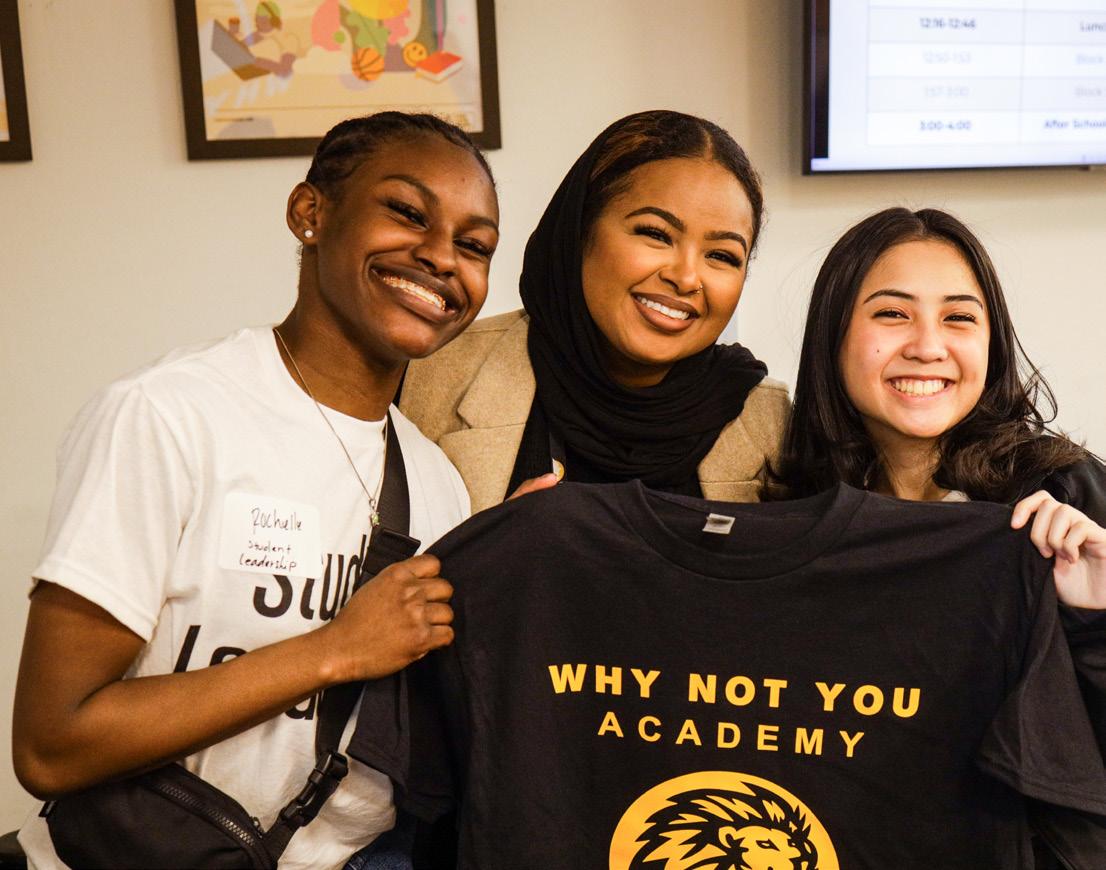
WYCOMBE ABBEY SCHOOL, CHANGZHOU MOST ADMIRED INTERNATIONAL SCHOOL IN ASIA
28 Pinnacle of Academic Excellence, Holistic Development, and Global Community Impact


K12 Digest March 2024 6
CONTENTS CONTENTS

10 COVER STORY
WHY NOT YOU ACADEMY
EMPOWERING
STUDENTS FOR REAL-WORLD SUCCESS
MENTOR’S MANTRA

22 TRANSFORMING K-12 EDUCATION: EXPLORING THE INNOVATIVE IMPACT OF AI TOOLS
Naomi Hemesath-Harm, Women Leadership Strategist and STEM Innovation Specialist at Innovative Educator Consulting
K12 Digest March 2024 7
ADMIN PERSPECTIVE
62 IS MORE ACTUALLY BETTER?
THE QUALITY V. QUANTITY DEBATE
Curtis M. Clough, Superintendent, Corona (NM) Public Schools
INDUSTRY PERSPECTIVE

48
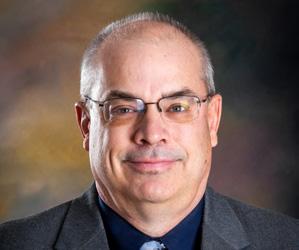
EDTECH’S EVOLVING LANDSCAPE: THE FUTURE OF K-12 EDUCATION
Dr. Neil Hopkin FRSA, Director of Education, Fortes Education
THE DAWNING OF A NEW ERA: HOW AGI IS REVOLUTIONIZING K-12 EDUCATION
Bart Caylor, President & Founder, Caylor Solutions
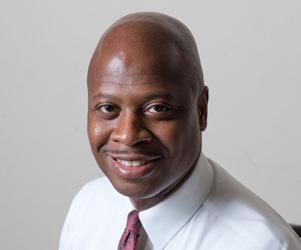
58
52

COACHING AND MENTORING: KEY COMPONENTS NEEDED TO BECOME A HIGHLY EFFECTIVE SCHOOL LEADER
Edward W. Gordon, Chief Executive Officer, Gordon Leadership Academy
K12 Digest March 2024 8 CONTENTS CONTENTS

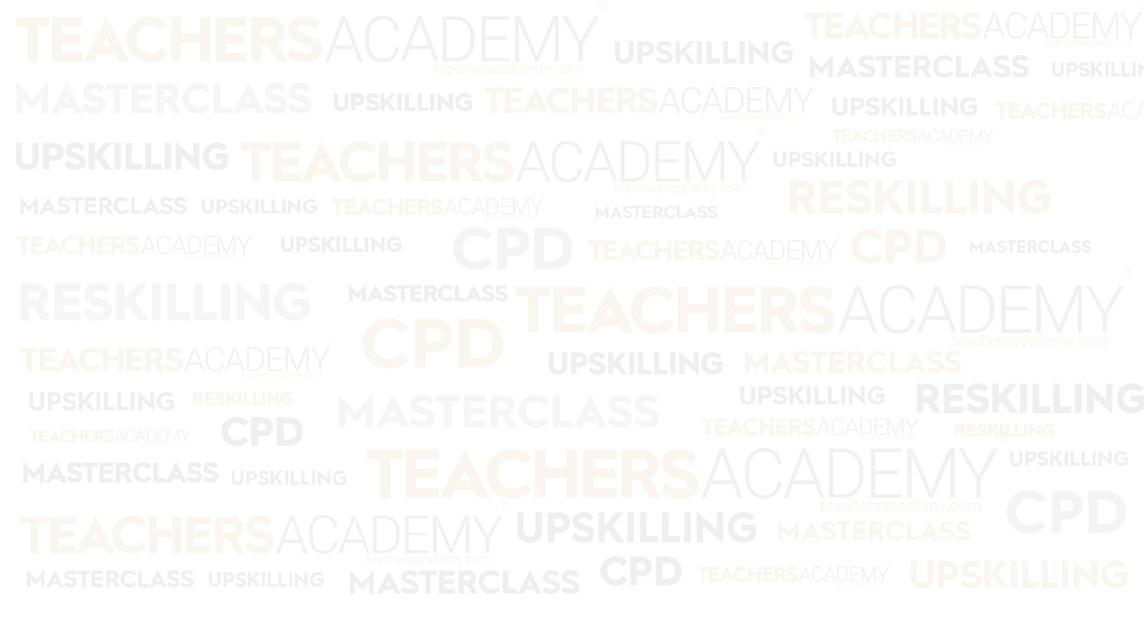

Amazing Opportunity for Teachers and School Leaders to enhance their knowledge through FREE Teachers Academy masterclasses from international education experts !!! For more details and registration www.teachersacademy.com

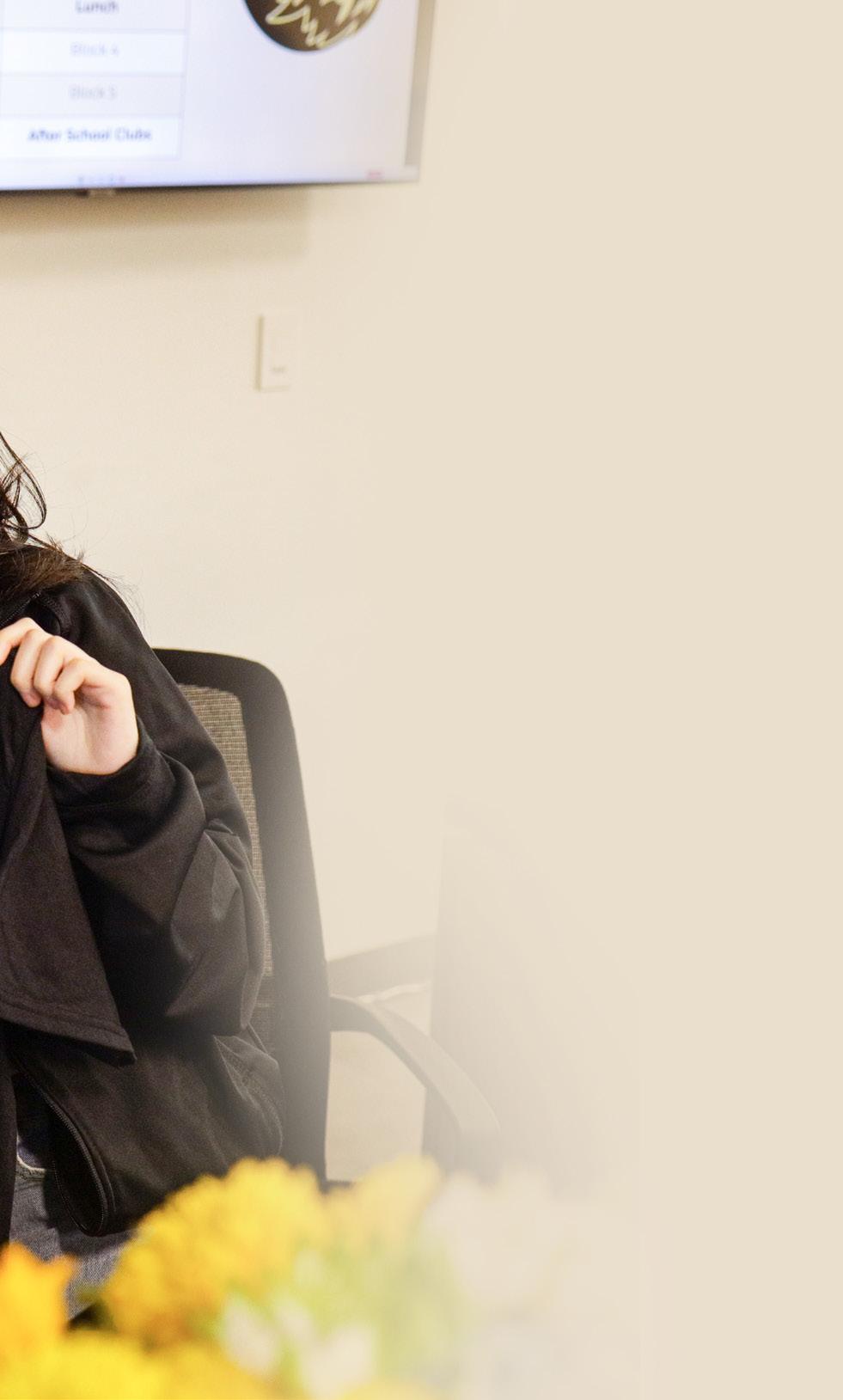
WHY NOT YOU ACADEMY
EMPOWERING STUDENTS FOR REAL-WORLD SUCCESS
K12 Digest March 2024 11
COVER STORY
The Why Not You Academy (WNYA) was founded by individuals who had a deep understanding of traditional schools. They wanted to do something different and create a community-based school located in Des Moines, WA to address the need for a new type of educational institution. Scott Canfield believed in creating a school that wasn’t just about studying from books but also about experiencing real-life situations. He needed a partner who shared his dream, and that’s where Russell Wilson, Ciara, and the Why Not You Foundation joined the picture. Abigail O’Neal,
CEO of Why Not You Academy, explains, “They decided to partner and create Why Not You Academy when they realized their visions and missions were aligned.”
WNYA’s goal is simple: to give every student a fair chance at success and help them graduate with the skills they need for a purposeful life. Abigail O’Neal adds, “At WNYA, we believe that education isn’t just about classrooms; it’s about real experiences, meaningful relationships, and opportunities in the community.” So, at WNYA, students don’t just sit in classrooms. They work on projects they’re passionate about, and they even get to try out real jobs through internships. Abigail


K12 Digest March 2024 12
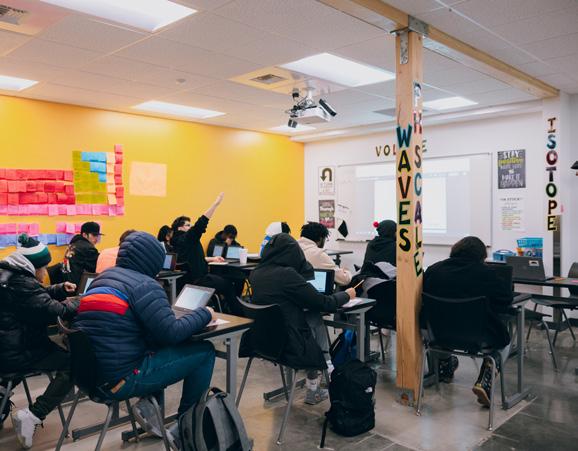

O’Neal emphasizes, “This way, our students learn how to handle real-life challenges and build strong networks for their future.” Today, WNYA has become a truly international school with 17 languages spoken among the students and staff members.
Jaxon Rowland, a tenth-grader at Why Not You Academy, says that the environment at WNYA allows him to flourish, grow, and feel confident in himself. “My challenge is being Black. People tell me how I present myself is how I want to be treated. So, every time I walk into a room, people are going to look at me differently based on the color of my skin,” says Rowland. “I am not that Black kid that no one can teach. I am someone who is smart and can have an intelligent conversation. One thing about my school is when you come here, you can be yourself. Every time you step in the door, you are going to find somebody who is going to like you for who you are.”
At WNYA, a robust support network is woven around all scholars. This safety net comprises dedicated teachers, experienced school leaders, and mentors from the community
K12 Digest March 2024 13

Dynamic Initiatives in Education and Inclusion
Why Not You Academy (WNYA) is an innovative and inclusive educational institution. The academy is proud to provide its students with various opportunities for creative expression, including a cutting-edge recording studio. This state-of-the-art facility is made possible through the generous funding of the Find Your Grind Foundation, which shares the academy’s vision of empowering the next generation through the arts.
WNYA is breaking barriers in computer science education through a groundbreaking partnership with Project Grind. The academy is dedicated to bridging the digital divide, particularly for students from the Global Majority, by introducing them to the world of coding. This ensures that Black and Brown scholars are equipped with valuable skills to succeed in the technological landscape of the future.
At the core of WNYA’s educational philosophy is the “Leaving to Learn” program. This unique initiative places students at the forefront of their learning journey by emphasizing autonomy and self-discovery. The

K12 Digest March 2024 14
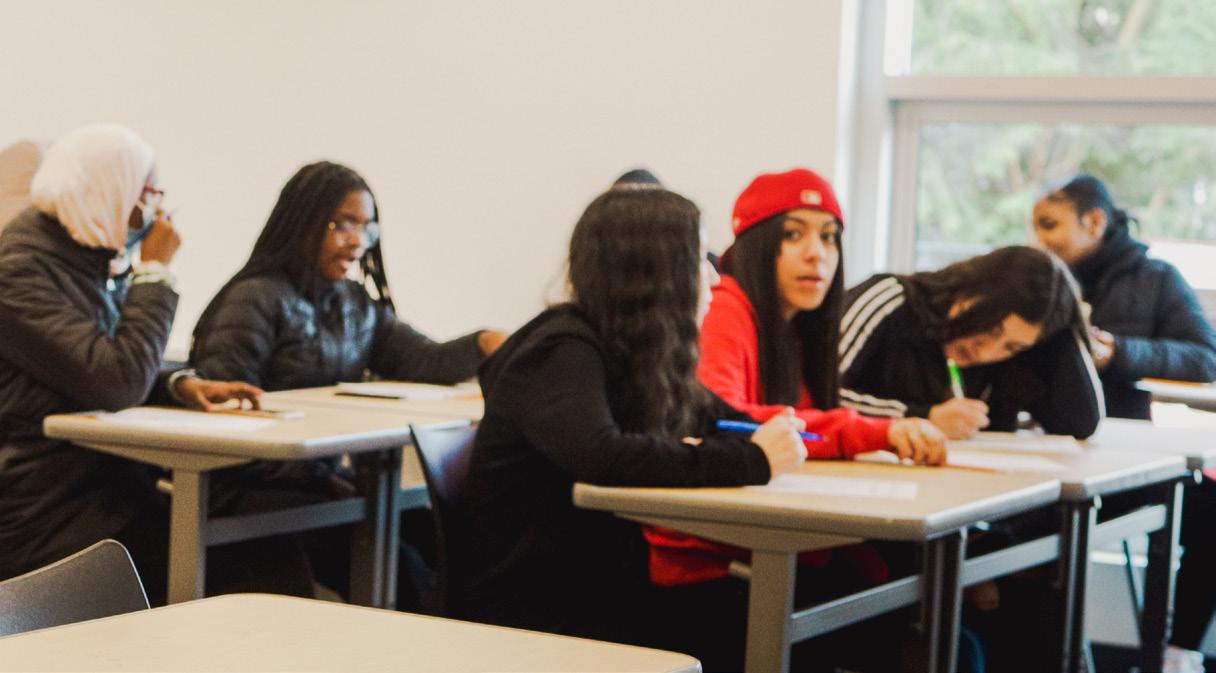
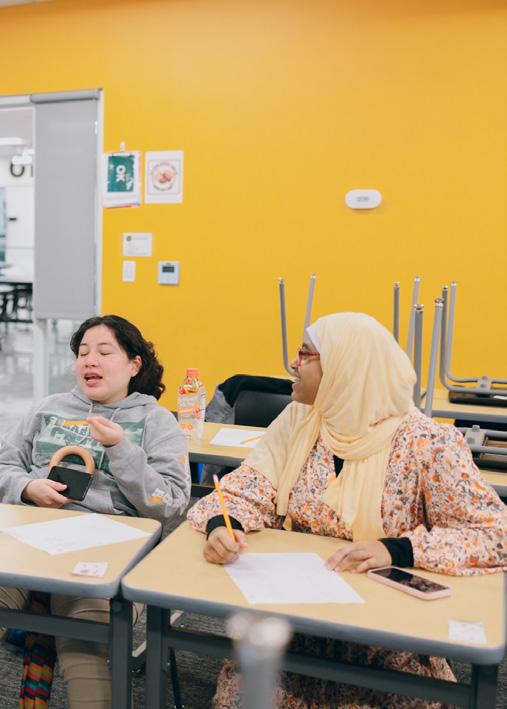
program empowers students to explore their interests and connect with mentors who guide them on their individual paths. By fostering a student-led approach, WNYA not only nurtures academic growth but also cultivates a sense of purpose and passion in each scholar.
Diversity is highly valued at WNYA, not only among students but also among the academy’s teaching staff, senior leadership team, and board of directors. The academy is firmly committed to anti-racist practices and strives to create an environment where students can see themselves represented by their educators. WNYA envisions a future where all scholars, regardless of their background, are not only prepared for college, but also equipped with the skills and knowledge necessary for successful careers. The academy firmly believes in the principles of equity and excellence and seeks to embody them in all aspects of its educational mission.
Building a Support Network
At WNYA, a robust support network is woven around all scholars who come from 50 different middle schools of many diverse backgrounds. This safety net comprises
K12 Digest March 2024 15

Through a diverse array of events, collaborative partnerships for immersive field trips, enlightening career panels, and transformative internships, WNYA students don’t just passively learn; they actively engage with the world around them
K12 Digest March 2024 16

dedicated teachers, experienced school leaders, and mentors from the community. The Academy also collaborates with organizations specializing in youth development. These partners are inspiring role models, sharing their educational journeys and life stories. Abigail O’Neal emphasizes, “The goal is to provide unwavering support at every stage of the scholar’s journey.”
Each student is paired with a personal advisor. These advisors craft personalized plans for every scholar. They convene at the start of each semester to delve into the student’s interests and career aspirations. Together, they explore various career paths and identify organizations that can offer more information and potential internship opportunities.
Abigail O’Neal offers an inspiring example: “Recently, one of the scholars secured an internship with the Seattle Storm, pursuing her passion for kinesthesiology. She will gain firsthand insights from the Storm’s athletic trainer.” These personalized plans empower students to not only
define their aspirations but also establish connections with professionals who can help them explore their interests.
Connecting Classroom Learning to Real-World Applications
WNYA seamlessly integrates classroom education with practical, real-world experiences to empower its scholars. This approach ensures that students gain knowledge and develop valuable skills for their future careers. In the advisory and leaving-to-learn classes, scholars actively practice reaching out to professionals in their chosen fields. They confidently make cold calls and send emails to schedule interviews with these experts. These interviews provide an opportunity for scholars to learn about the educational and career journeys of these professionals. Abigail O’Neal emphasizes, “It’s all about honing networking skills that will serve them well in their future careers.”
WNYA’s mentorship program plays a pivotal role in this process. Educational advisors and mentors engage with their

K12 Digest March 2024 17

dedicated class of scholars on a daily basis. During these sessions, scholars collaborate closely with their mentors to explore their goals, interests, and community engagement opportunities. Mentors work in tandem with the Advisors to identify community partners aligned with students’ interests. Importantly, these mentors stay with their class of scholars throughout their four years of high school.
Embracing Challenges and Nurturing Growth
As a new academy, WNYA has encountered its fair share of challenges while charting unexplored territories. Nevertheless, their distinctive approach to education has injected an infectious sense of excitement into their journey. They’ve quickly realized that their scholars possess a diverse range of needs, prompting them to think creatively. To support their scholars and their families, the academy has organized fundraisers and diligently pursued various grants. Abigail O’Neal states, “We’re

K12 Digest March 2024 18
The upcoming 20242025 school year marks an exciting milestone for WNYA as they eagerly prepare to enroll scholars from 9th to 12th grade


dedicated to creating an environment where every student can not only thrive but also achieve success.”
Community engagement lies at the core of WNYA’s educational philosophy. Through a diverse array of events, collaborative partnerships for immersive field trips, enlightening career panels, and transformative internships, students don’t just passively learn; they actively engage with the world around them. Some outstanding scholars have had the privilege of interning at early learning centers, schools, and even local sports teams. These experiences empower students to ask probing questions, gain invaluable firsthand knowledge, and forge meaningful connections within the community.
At WNYA, the belief is clear: education extends far beyond the classroom. It flourishes through active engagement and meaningful community partnerships, enriching the educational experience for every scholar.
K12 Digest March 2024 19


A Milestone Year and Future Horizons
The upcoming 2024-2025 school year marks an exciting milestone for WNYA as they eagerly prepare to enroll scholars from 9th to 12th grade. What makes this academic year particularly significant is the journey of their founding students, who began this educational adventure with them. These students will soon step into their senior year, becoming the very first graduating class of WNYA.
WNYA’s unique approach to education, characterized by Leaving to Learn experiences, has consistently demonstrated its success in
nurturing the comprehensive growth of its students. Abigail O’Neal shares, “We’re thrilled to witness our scholars actively exploring historically black colleges and universities (HBCUs) through our innovative programs. This opens doors to boundless opportunities, allowing them to reach their full potential.”
The future plans for WNYA are firmly anchored in their unwavering dedication to education and the success of their students. As they envision the day when their founding class proudly graduates, the anticipation is palpable. Each scholar walking across the stage, celebrating their remarkable achievements, will be a moment filled with immense pride and joy.
As they progress, the Academy is eager to expand their offerings enrolling a full 9-12th high school, welcoming more dedicated staff members into their school family, and broadening their elective courses. This expansion will provide even more enriching experiences for their students. Year by year, they continue to grow, extending a warm embrace to new families who become an integral part of their school community. This growth strengthens their commitment to nurturing future leaders and lifelong learners.
K12 Digest March 2024 20





 MENTOR’S MANTRA
MENTOR’S MANTRA
Transforming K-12 Education: Exploring the Innovative Impact of AI Tools
Naomi Hemesath-Harm, Women Leadership Strategist and STEM Innovation Specialist at Innovative Educator Consulting
Within the ever-changing world of primary and secondary education, the integration of artificial intelligence and Artificial intelligence (AI) tools is revolutionizing conventional teaching approaches and expanding possibilities for educators and students alike. This academic article explores the profound impact of cutting-edge tools such
as ChatGPT, SchoolAI.com, Magic School AI, Ideogram AI, Magic Canva AI, and Goblin Tools on the teaching and learning experience.
As we delve into the depths of these innovative technologies, we uncover a plethora of new learning outcomes and discoveries, supported by key teaching and learning examples that showcase their potential to revolutionize education.
AI-powered tools like ChatGPT and Ideogram AI facilitate interactive and engaging learning experiences
K12 Digest March 2024 22
Naomi is a published author, influential STEM leader, compassionate educator, and an innovator in the field of edtech for women in leadership roles. She is dedicated to incorporating STEAM-related creativity into her many K12 professional learning programs. She is eager to talk to k-12 educators and school administrators about her experience with brain-based instructional approaches that are bolstered by technological literacy best practices. Her current professional offerings include coaching and mentoring young women to enter STEAM-related careers, coding and robotics-themed activities, global engineering derbies, problem-solving student-centered design challenges, redesigning classroom learning spaces with the brain in mind, and maximizing creativity, communication, and collaboration with this new wave of AI in education. Her 25 years in the educational teaching and learning space reflect a passiondriven approach to leading and learning as a CUE STEM Educational Specialist, ISTE Faculty Instructional Coach, Google Certified Innovator, Woman in Leadership Coach and Mentor, CS for All Teacher Ambassador, Master LEGO Educator, Makey Makey Ambassador, Book Creator Ambassador and CEO and founder of her own Innovative Educator Consulting company.
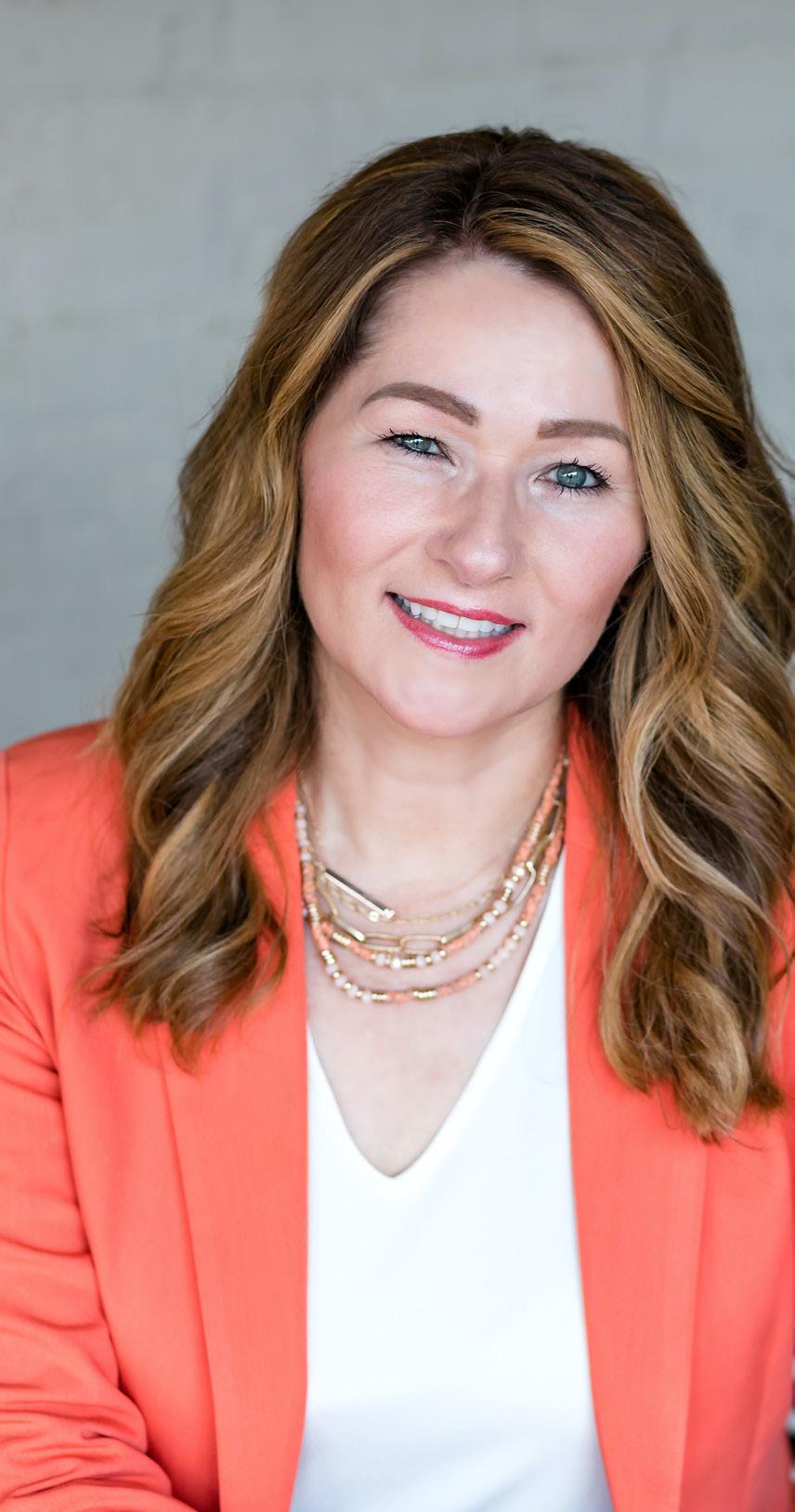
March 2024
Enhanced Student Engagement: AIpowered tools like ChatGPT and Ideogram AI facilitate interactive and engaging learning experiences. Students can interact with virtual tutors, ask questions, and receive personalized feedback, fostering a more dynamic and participative educational environment.
Differentiated Learning for Diverse
Abilities: Magic School AI and SchoolAI. com stands out in its ability to adapt content to suit varying learning abilities. Through personalized learning pathways, it tailors instructional content and personalized “SideKick” chatbots to meet the unique needs of individual
students, ensuring a more inclusive and supportive learning environment.
Creative Lesson Planning: Magic Canva
AI empowers educators to think outside the box when designing lesson plans and activities. The tool provides customizable templates and design suggestions, allowing teachers to infuse creativity into their teaching materials and captivate students’ attention, with more visualized learning and creative writing prompts.
Streamlined Administrative Tasks: Goblin Tools revolutionizes the administrative side of teaching, automating routine tasks such as
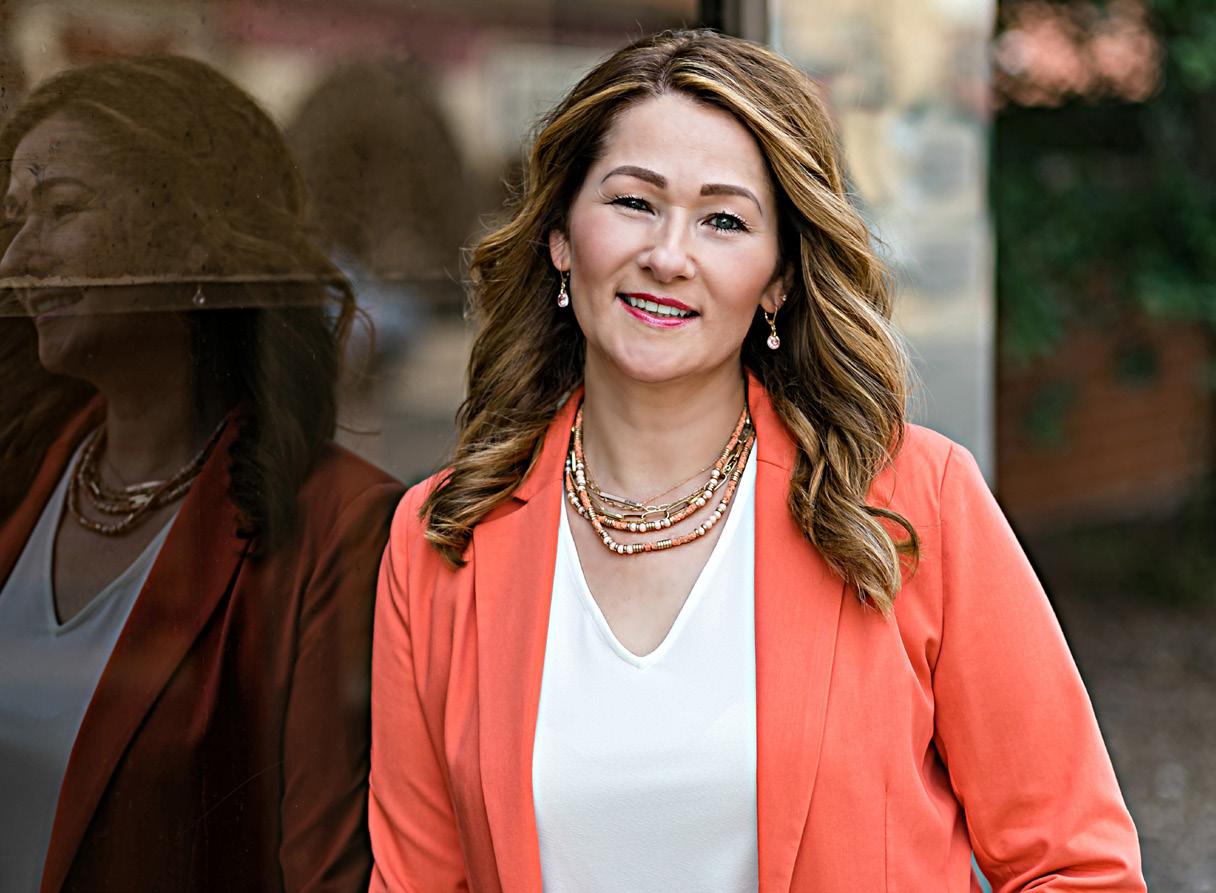
ChatGPT, with its natural language processing capabilities, enables students to engage in conversational learning
grading and attendance tracking. This timesaving feature allows educators to focus more on personalized instruction and building meaningful connections with their students.
Improved Tech Literacy Skills: SchoolAI. com offers professional development opportunities for teachers to enhance their tech literacy skills. Educators can participate in workshops, webinars, and collaborative projects, ensuring they stay abreast of the latest technological advancements and integrate them seamlessly into their classrooms.
Proven Key Teaching and Learning Examples I Have Created and Used Personally
In my journey as a 25-year veteran educator, I have actively embraced innovative teaching and learning approaches, crafting proven key examples that have not only enhanced the educational teaching experience but also fostered a dynamic and engaging classroom
learning environment. Leveraging cutting-edge technologies, I have incorporated ChatGPT, a powerful language model, to facilitate interactive discussions and provide personalized assistance to students. Additionally, platforms like SchoolAI.com and Magic School I have become integral parts of my teaching arsenal, offering curated resources, interactive lessons, and real-time feedback mechanisms through personalized content-driven “SideKick ‘’ student conversational chatbots.
To amplify creativity, I have employed Goblin Tools to seamlessly integrate gamification elements into lessons, while supporting my streamlining of administrative tasks - all the while enhancing student motivation and participation. Moreover, the integration of Canva Magic AI has allowed me to effortlessly create visually stunning and customized materials, transforming the learning experience into a visually engaging journey. These teaching and learning examples, born from personal
K12 Digest March 2024 25
The integration of AI tools in K-12 education marks a transformative era, offering enhanced engagement, personalized learning, and streamlined administrative processes
experience, represent a commitment to harnessing the potential of advanced technologies for the betterment of education.
Conversational Learning with ChatGPT:
ChatGPT, with its natural language processing capabilities, enables students to engage in conversational learning. Whether through virtual discussions or interactive quizzes, the tool facilitates a more conversational and personalized learning experience.
Adaptive Learning Paths with Magic School
AI: A student struggling with a particular concept can benefit from the adaptive learning paths provided by Magic School AI. The tool identifies areas of weakness and tailors the curriculum to strengthen those specific skills, ensuring no student is left behind.
Visual Storytelling with Magic Canva
AI: Magic Canva AI empowers educators to incorporate visual storytelling into their lessons. Teachers can create visually appealing
presentations, infographics, and interactive materials, enhancing students’ comprehension and retention of information.
Efficient Administrative Management with Goblin Tools: Goblin Tools simplifies administrative tasks, such as grading assignments and tracking attendance. This efficiency allows teachers to allocate more time to student-centered activities and fosters a more personalized approach to education.
In conclusion, the integration of AI tools in K-12 education marks a transformative era, offering enhanced engagement, personalized learning, and streamlined administrative processes. As educators embrace these tools, they not only cater to the diverse needs of students but also enrich their own teaching practices, making the classroom a hub of innovation and inspiration. As we look toward the future, the fusion of AI and education promises a landscape where every student, regardless of ability, can thrive and excel.
#TogetherWeAreBetter
K12 Digest March 2024 26


28 K12 Digest March 2024

MOST ADMIRED INTERNATIONAL SCHOOL IN ASIA
WYCOMBE ABBEY SCHOOL, CHANGZHOU
Pinnacle of Academic Excellence, Holistic Development, and Global Community Impact
Changzhou, situated in the vibrant heart of China, is one of several fast-growing cities on the lower Yangtze River and is less than one hour from Shanghai by high-speed train. A new high-speed rail line, with a station 10 minutes from the school, will give direct access to Shanghai (Pudong) International Airport in 45 minutes.
Today, Changzhou has emerged as a compelling destination for international school education. Its unique blend of rich cultural heritage, modern infrastructure, and a rapidly growing economy makes it an ideal choice for students seeking a global learning experience.
K12 Digest March 2024 29

ABOUT
DR. PAUL SILVERWOOD, HEADMASTER, WASCZ
With over 25 years of experience in teaching and educational management, Dr Paul Silverwood served as the former Headmaster of Queen Margaret’s School in the United Kingdom, as well as the former Assistant Head of Benenden School, Princess Anne’s alma mater. Additionally, he held the positions of Head of Department, Head of Grade and Deputy Housemaster at Oxford St. Edward’s School in the United Kingdom. He earned his Bachelor’s and Master’s degrees in Natural Sciences from the University of Cambridge and completed his PhD in Nuclear Chemistry at the University of Manchester, both in the United Kingdom.
K12 Digest March 2024 30

Located in Changzhou, Wycombe Abbey School (WASCZ) is a world-class boarding and day school for children aged 3 to 18, providing an all-round, fully integrated, bilingual, holistic education that not only prepares students for entry to the world’s top universities, but provides them with the knowledge, skills, and competencies for life
Located in Changzhou, Wycombe Abbey School (WASCZ) is a world-class boarding and day school for children aged 3 to 18, providing an all-round, fully integrated, bilingual, holistic education that not only prepares students for entry to the world’s top universities, but provides them with the
knowledge, skills, and competencies for life. “Our vision is that ‘Every child can excel,’ and it is our responsibility to approach each student as an individual and nurture them as they grow in confidence, take on responsibility, and achieve independence,” says Dr. Paul Silverwood, Headmaster, WASCZ.
K12 Digest March 2024 31
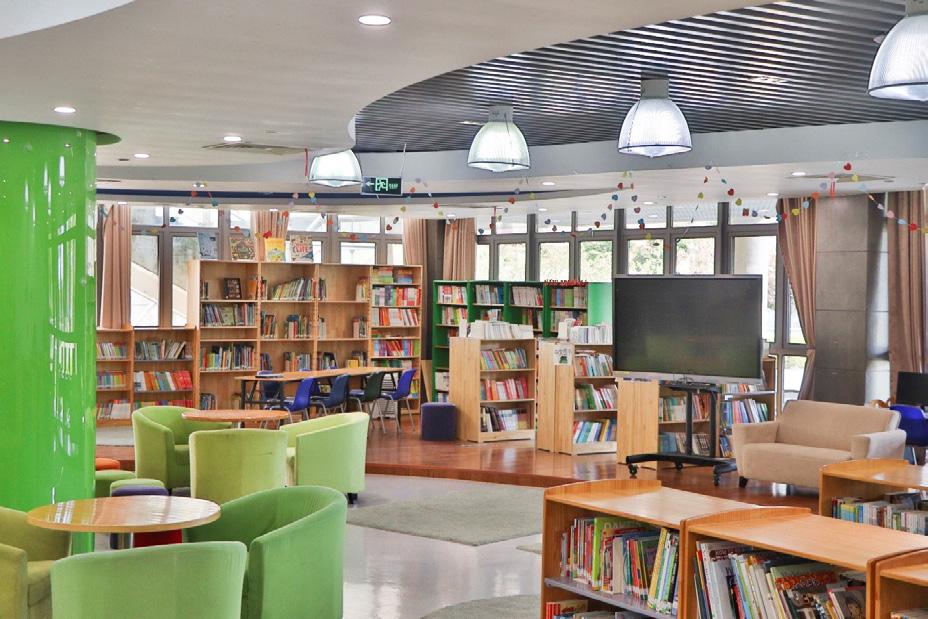
WASCZ endeavours to instil a passion for learning in every child. The goal is for each student to advance from relying on teachers and peers to becoming independent thinkers and learners. The school aims to nurture individuals who mature with compassion and kindness, actively supporting the aspirations of those in their vicinity. Dr. Paul adds, “Together, we aspire to share in each other’s successes and contribute collaboratively to both the local community and the broader world.”
A Modern Haven for Holistic Education Amidst Nature’s Embrace
Wycombe Abbey School, founded in 1896, is a prestigious educational institution in the UK that is committed to academic excellence and the all-round development of its students.

K12 Digest March 2024 32
WASCZ, recognized as the ‘International School of the Year’ by the Boarding Schools Association in 2022, places a strong emphasis on pastoral care
In 2015, BE Education collaborated with Wycombe Abbey School and established its first international school in Changzhou, extending its footprint. The school, known as WASCZ, has since thrived and earned an outstanding reputation for its academic credentials, performing arts, creative arts, and sports.
WASCZ is located in the Wujin District, which is 30 minutes away from the Changzhou city centre. The campus is in the parkland and gardens of a nature reserve, part of the Xitaihu Lake International Community, and it overlooks the West Taihu Lake. Dr. Paul shares, “Our campus is modern and spacious, and it comprises twelve buildings that provide direct access to water sports.” The buildings include the Administration (A), Upper School Classrooms (B), Lower School Classrooms (C), Theatre (Performing & Visual Arts) (D),
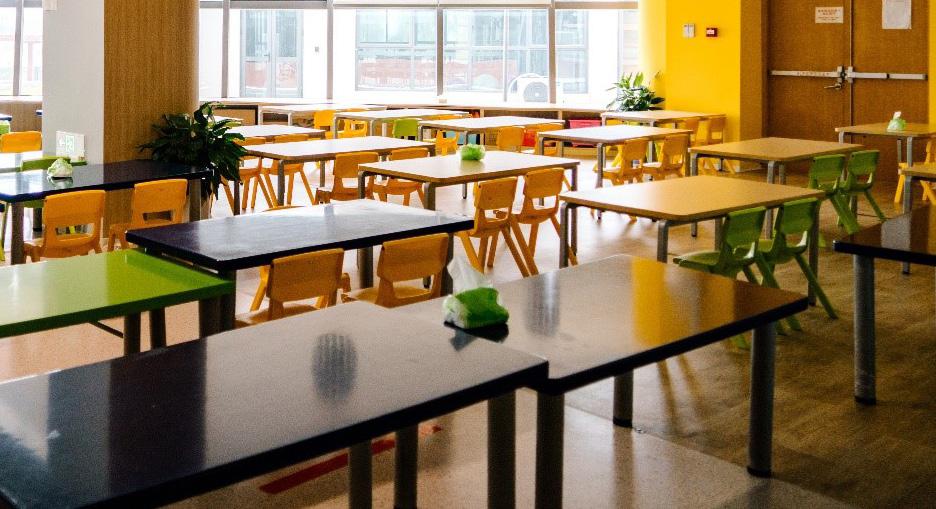
K12 Digest March 2024 33
Watersports Centre (E), Kindergarten (F), Boys’ Boarding Houses & Staff Apartments (G), Lower School Boarding Houses, Wellbeing Centre and Dining Room (H), Girls’ Boarding Houses (I), Sports, Science & Technology Complex (J), Sports Stadium (K), Sports Dome (L), Medical Centre (M), and Boathouse (N).
The campus boasts a wide range of sports facilities, including a badminton hall, fencing hall, table-tennis hall, golf driving range, basketball stadium, rugby stadium, 400m running track, 25m competition swimming pool, beginners’ training pool, weights gymnasium, cardio gymnasium, boathouse & lake, and a 10,000m2 air-conditioned
and filtered sports ‘Mega-dome’ (the largest of its type in the world) providing martial arts, tennis, badminton, volleyball, hockey, floorball, netball, and football pitches.
The Theatre building is dedicated to the visual and performing arts, with the auditorium, ensemble rooms, recording studio, art studios, individual instrumental teaching rooms, composition room, music theory rooms, music teaching rooms, and exhibition spaces. There are also four Dance & Drama studios with changing rooms and two LAMDA Speech studios. The Science & Technology Centre is home to fully equipped laboratories, a 3D-Printing Room, IT rooms, an examination/assembly hall, and an

K12 Digest March 2024 34
At Wycombe Abbey School, extracurricular activities are an important part of a student’s education.
They offer over 100 clubs and activities, covering various areas from physical to performance, during weekends and evenings
engineering technology studio. The campus has 24-hour security, extensive gardens and walks, and breathtaking views.
The Evolution of WASCZ
Since its establishment in 2015, WASCZ has evolved exponentially. In June 2017, WASCZ joined COBIS - The Council of British International Schools. This accreditation is held only by the top British-style international and bilingual schools in the world, and there are very few in China who have achieved this status. According to recent research, there are now more than 3,700 British international schools, but only under 300 have COBIS status. “Joining COBIS means that we now have access to CPD courses from external providers for teachers, leaders, and administrators. We also have the opportunity to network with COBIS schools around the world in our subject areas, as well as participate in academic, musical, artistic, dramatic, and sporting competitions,” explains Dr. Paul.
In addition, COBIS membership shows that WASCZ is a leading British-style bilingual school that follows the governance requirements and curricula that would be expected by an HMC school in the UK. Dr. Paul notes, “This means that prospective parents, students, and teachers can see that we are a genuine UK school in an international setting, providing outstanding education for a Chinese demographic. COBIS is a mark of recognized excellence in British Education across the world, and we will undergo compliance checks and re-accreditation with COBIS in 2024.”
In September 2019, WASCZ added another school to the Group with the opening of Wycombe Abbey School Hong Kong. Then, in September 2021, bilingual schools in Hangzhou and
K12 Digest March 2024 35
Nanjing were added. Each of the Wycombe Abbey Schools within the International Group will exist as an independent institution, led and governed independently. Within this construct, the Senior Leaders will be supported by the HQ team and will work closely with the other Wycombe Abbey Schools to ensure that synergies across the group in teaching and learning, professional development, curriculum design, technology, marketing, finance, and human resources are optimised.
“In 2021, we became an accredited member of the Boarding Schools Association (BSA)a kitemark of excellence for schools that look after and nurture the lives of young people in a long-term residential setting,” Dr. Paul says. Membership gives WASCZ staff access to resources and training in safeguarding, pastoral care, and student and staff development. The
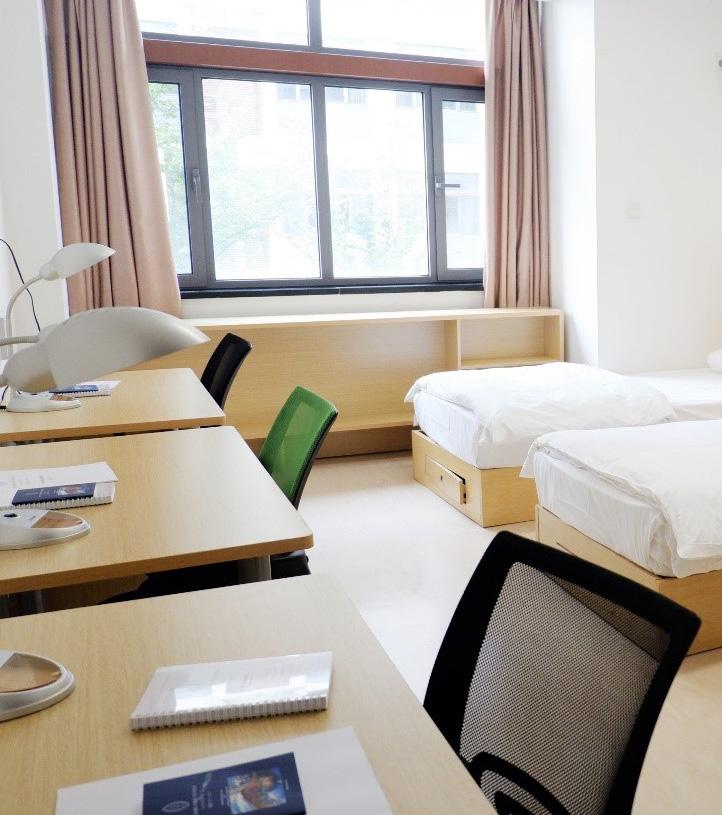
At WASCZ, the Global Perspectives (GP) program stands as a cornerstone in the academic journey of students from Grades 1 to 12
K12 Digest March 2024 36

school has also developed its own bespoke course in partnership with the BSA to deliver to all new local teachers. The Preliminary International Teaching Certificate (PITC) course covers the teaching standards and national minimum standards for boarding. It prepares candidates for a full Qualified Teacher Status (QTS) course in their second year at WASCZ. “In 2022, we were named ‘International School of the Year’ by the BSA for the pastoral support we had given to students throughout the pandemic,” states Dr. Paul.
Creating Well-Rounded Leaders
In the pursuit of holistic education at WASCZ, the institution is guided by five key
aims, each contributing to the comprehensive development of students.
Pastoral: WASCZ, recognized as the ‘International School of the Year’ by the Boarding Schools Association in 2022, places a strong emphasis on pastoral care. Teaching staff are integrated into one of the 12 Houses, creating a sense of community. The six girls’ Houses (Austen, Blyton, Cavell, Dove, Fonteyn, and Somerville) and six boys’ Houses (Blake, Elgar, Hawking, Newton, Scott, and Turner) serve as foundational units. Boarding options are available for children aged 7-11 (weekly) and 12-18 (full), fostering a supportive environment. All staff actively engage in the work, competitions, and activities of their respective House, demonstrating a commitment to the students’ well-being.
Academic: WASCZ places a premium on academic excellence by recruiting top-tier staff, both locally and internationally. This commitment is underscored by providing resources for student development, offering outstanding professional development and training for faculty, and aspiring to uphold the pioneering spirit and traditions of Wycombe Abbey School in the UK. The institution’s academic standards are exemplified by its track record of placing students in leading universities globally. The academic journey at WASCZ is characterized by a bespoke Integrated Curriculum in G1-9, aligning essential content from the Chinese National Curriculum with the Cambridge International Primary and Lower Secondary Curricula.
K12 Digest March 2024 37
This approach, coupled with international teaching and learning methods, sets a standard in academic rigor. In G10-12, students pursue Pearson Edexcel or Cambridge International GCSEs and A Levels, achieving excellent results with a notable 70% (A*/A) and 85% (A*/B) in A Levels. Approximately 35% of graduates go on to study in the world’s top 20 universities, reflecting the school’s commitment to academic excellence across Science & Technology, Commerce & Business, and the Arts.
Enrichment: Enriching the educational experience, WASCZ places a significant emphasis on providing exposure to a diverse range of activities aligned with Howard Gardner’s ‘Multiple Intelligences.’ The school offers clubs, societies, and activities
categorized under physical/bodily/kinaesthetic, intrapersonal/leadership, linguistic/verbal, technical/logical, environmental/naturalist, international/cultural/identity, artistic/creative/ spatial, and performance/musical. This approach ensures a well-rounded and comprehensive enrichment program, contributing to the multifaceted development of each student.
Extension: WASCZ goes beyond traditional education by focusing on extension activities that deepen students’ mastery of specific disciplines. Through mentorship programs, students are provided with opportunities to showcase their skills and test their abilities beyond their immediate peer group. This is manifested in various ways, including Higher and Extended Project Qualifications, Music

K12 Digest March 2024 38

Theory, and participation in Extension Clubs and Societies. The institution actively engages in academic competitions such as Science Olympiads, World Scholars’ Cup, National Chess League, and Model United Nations, aiming to provide a platform for students to excel beyond the conventional curriculum.
Community: Recognizing the global impact of its students, WASCZ places a strong emphasis on fostering an outward-looking perspective and community engagement. The school extends its Creative Arts, Performing Arts, and Sports programs beyond the campus through exhibitions, concerts, tours, and tournaments. Collaboration with sister schools, partnerships with organizations like WASHK and WASUK, and engagement in
At WASCZ, the essence of British-style boarding education manifests in a unique and nurturing experience
K12 Digest March 2024 39

summer courses and outreach programs to local schools reflect the institution’s commitment to community involvement. Notably, WASCZ plays a pivotal role in the development of the ‘Two Lakes’ international innovation initiative in the region, contributing to the attraction of international talent and business into Changzhou. This year, the establishment of the ‘Friends of Wycombe’ group further signifies the school’s dedication to building a supportive community encompassing families, friends, alumni, and school contacts, enhancing its influence and impact.
Nurturing Excellence Through Holistic Education
At Wycombe Abbey School, extracurricular activities are an important part of a student’s education. They offer over 100 clubs and activities, covering various areas from physical to performance, during weekends and evenings. “Our elective Enrichment programme is also embedded in the school day, with ‘E&X’ activities occupying two
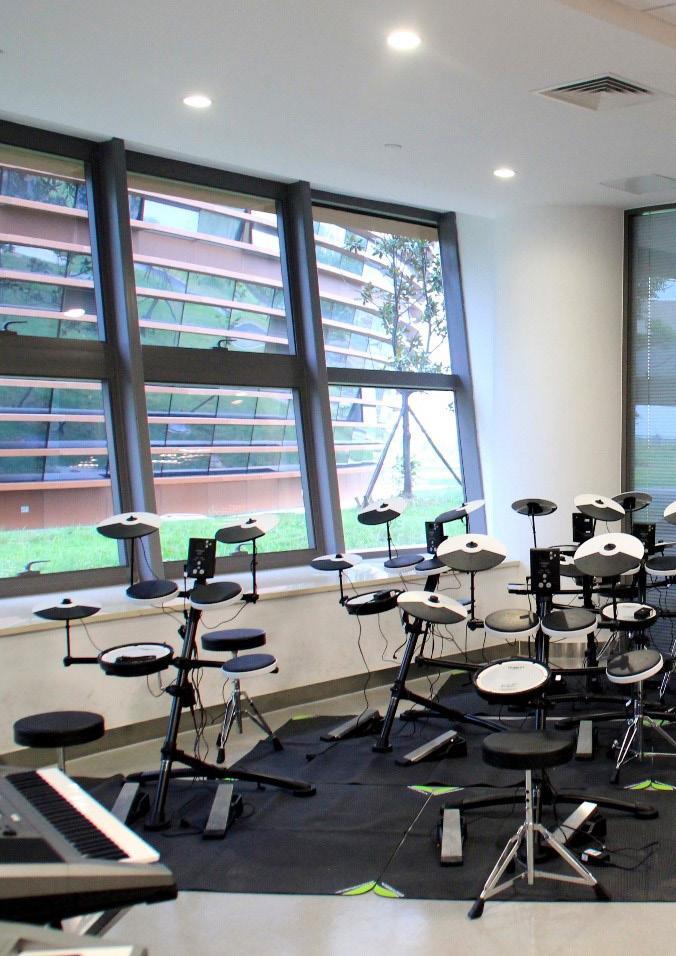
K12 Digest March 2024 40
double periods in the timetable, emphasising the importance of holistic education, student choice and leadership,” shares Dr. Paul.
Inter-House Competitions encourage competition and collaboration between the 12 Houses through friendly contests. Events like ‘House Unison’ involve all students, culminating in spectacular community events. These competitions, ranging from large-scale productions to smaller group events, instill team spirit, encourage participation, and contribute to House Points tallies, determining House Champions and Cup recipients. The House

system, spanning from K1 to G12, establishes continuity and community engagement.
The Performing Arts Faculty, with 30 internationally trained professionals, offers a rich tapestry of tuition, ensembles, concerts, and productions. Music lessons cover over 20 orchestral and traditional Chinese instruments, Speech & Drama, and Ballet, providing students with a diverse array of artistic expressions. The annual Culture Festival, Pops Concert, and international study and performance tours create a dynamic calendar of events, enhancing students’ cultural exposure and creative pursuits.
The boarding experience at WASCZ is rooted in creating a supportive and nurturing environment that strikes the right balance between work, rest, and play
K12 Digest March 2024 41
Visual Arts at Wycombe Abbey School
nurture creative talents, with students consistently securing places at prestigious Art Colleges. Exhibitions, both on campus and in external venues, showcase exceptional quality work across painting, fashion design, photography, graphic design, and ceramics. Collaborations with established artists and participation in international competitions underscore the faculty’s dedication to nurturing artistic excellence.
The school’s sprawling facilities for Sport & Exercise include the world’s largest Mega-Dome for school sports, a Rowing & Sailing Club, Watersports Centre, Basketball Stadium, and more. The campus promotes a culture of health and fitness, with teams
participating in local and national leagues, as well as international tours like the Rugby and Netball squads’ visit to New Zealand in 2024. The tri-series, involving sister schools in Nanjing and Hangzhou, provides Lower School children with valuable opportunities to compete, train, and experience mini-tours.
Trips & Experiential Learning offers students opportunities to plan, collaborate, and lead. From international expeditions like the Borealis Expedition to Iceland and Cultural Tours to Europe to local adventures in the KG Garden, Forest, and Farm, the school promotes hands-on learning experiences. Students undertake outdoor pursuits, the Duke of Edinburgh International awards, and activities ranging from trekking in Inner
The residential life at WASCZ is characterized by a commitment to the well-being and personal growth of every student
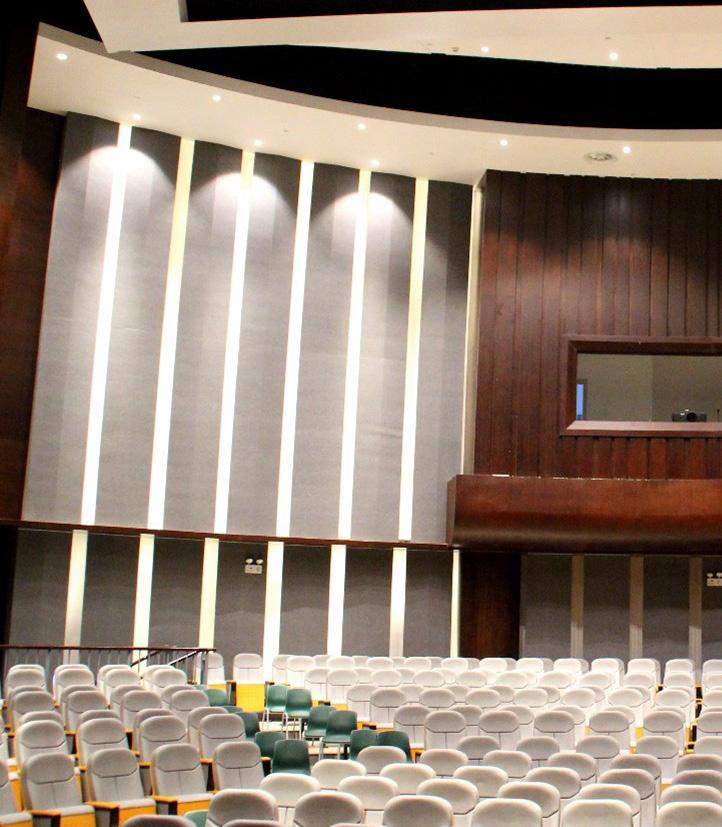
K12 Digest March 2024 42


Mongolia to scuba diving in Thailand. These journeys enrich academic experiences and instil values of leadership, teamwork, and environmental stewardship. Wycombe Abbey School’s commitment to holistic education is reflected in these diverse experiences, shaping well-rounded individuals ready to face the challenges of the world.
Nurturing Global Citizens
At WASCZ, the Global Perspectives (GP) program stands as a cornerstone in the academic journey of students from Grades 1 to 12. Designed to emphasize the interconnectedness of human society, GP goes beyond traditional subjects, fostering a holistic understanding of self, cultural diversity, social justice, and human rights. “GP promotes positive values and assists students to take responsibility for their actions and to see themselves as global citizens who can contribute to a more peaceful, just, and sustainable world,” shares Dr. Paul. The GP curriculum unfolds across seven compelling themes studied in each grade, seamlessly blending theoretical knowledge with real-world applications:
1. Identity and Place: Nurturing an understanding of self and fostering openness to diverse cultures.
2. Rights and Opportunities: Cultivating awareness of inequality, discrimination, and the responsibility to stand up for one’s rights while respecting the rights of others.
3. Water and Food: Exploring basic needs, a healthy diet, and the evolving challenges of a society transitioning from traditional agriculture to a globally interconnected economy.
K12 Digest March 2024 43
4. Energy and Consumption: Delving into sustainable ways to meet current needs without compromising environmental quality or hindering future generations.
5. Finance and Poverty: Understanding personal finance, economic systems, and the impact of fiscal changes on individuals and societies.
6. Conflict and Peace: Instilling the importance of positive relationships, conflict prevention, and peaceful resolution strategies.
7. Globalisation and Pandemic: Unravelling the complex web of social, economic, and
political interconnections, with a focus on the impact of changes on individuals, nations, and global dynamics.
Each theme is explored through diverse realworld examples, encouraging students to adopt different perspectives. The GP course, carefully crafted to enhance critical thinking skills, offers a spectrum of opportunities for students to recall, research, collaborate, interpret, evaluate, innovate, and communicate. “Each theme unit ends with a task so that students can showcase their learning and skills development. Examples of learning outcomes include Written articles, Press Releases, Poetry, Illustration, Photolog, Debates, Role-play, Presentations, Demonstrations, and Operation,” explains Dr. Paul.

K12 Digest March 2024 44
Collaborations with international partner universities, including UCL, the University of Manchester, and the University of Sunderland, enable staff to pursue qualifications such as QTS, PGCE, Professional Boarding Practice, NPQML, NPQSL, NPQH, MEd, and MA
A British-Style Home Away from Home
At WASCZ, the essence of British-style boarding education manifests in a unique and nurturing experience. The twelve Houses serve as the heartbeat of the school, embodying the ‘home away from home’ concept. In this caring community, students and staff live alongside each other, fostering a sense of continuity, belonging, and family within the broader school environment.
Each House is led by a dedicated Housemaster/mistress, supported by an Assistant Housemaster/mistress, Resident Tutor, Liaison Officer, and a team of ten Tutors who also serve as teachers in the school. A distinctive feature of the boarding experience is the tutor system, where each tutor mentors just five students, assuming roles as advocates, listeners, supporters, directors, and ‘parents.’ Through weekly one-to-one tutorials, tutors set and review targets, discuss contributions
and progress, support learning needs, and encourage students to explore new avenues, take intellectual risks, volunteer, and embrace opportunities for leadership.
Supportive and Nurturing Environment: Balancing Work, Rest, and Play
The boarding experience at WASCZ is rooted in creating a supportive and nurturing environment that strikes the right balance between work, rest, and play. Beyond academic guidance, the school places a strong emphasis on the holistic development of each student. Tutors act as pillars of support, ensuring that students not only excel academically but also thrive emotionally and socially. The Houses become close-knit communities, fostering a sense of camaraderie and shared experiences.
The residential life at WASCZ is characterized by a commitment to the well-being and personal growth of every student. Tutors play a pivotal
K12 Digest March 2024 45
WASCZ is actively involved in the establishment of its own teachers’ training academy, forming partnerships with the Changzhou Institute of Technology and the National Academy of Sciences
role in guiding students through challenges, celebrating successes, and fostering a sense of responsibility and independence. The close mentorship ensures that each student feels heard, valued, and supported throughout their boarding journey.
Investing in Professional Growth
Looking ahead, WASCZ is committed to the continuous professional development of its staff. The school’s staff-led appraisal system is complemented by various training opportunities and funding support for staff to acquire professional qualifications. Collaborations with international partner universities, including UCL, the University of Manchester, and the University of Sunderland, enable staff to pursue qualifications such as QTS, PGCE, Professional Boarding Practice, NPQML, NPQSL, NPQH, MEd, and MA.
A noteworthy project on the horizon is WASCZ becoming a registered centre for the Cambridge Professional Development Qualification (PDQ). The inaugural cohort of 28 teachers is currently engaged in a bilingual teaching and learning course led by the school’s experienced staff serving as course leaders and mentors. Additionally, the school is actively involved in the establishment of its own teachers’ training academy, forming partnerships with the Changzhou Institute of Technology and the National Academy of Sciences. Initiatives like Chinese language classes for staff and the employment of intern teachers from international divisions of Chinese universities underscore WASCZ’s commitment to educational excellence and innovation.
K12 Digest March 2024 46

EdTech’s Evolving Landscape: The Future of K- 12 Education
Dr. Neil Hopkin FRSA, Director of Education, Fortes Education
In the constantly evolving world of education, Artificial Intelligence (AI) has emerged as a central theme, raising the critical question: How do we embrace AI in education? The arrival of AI chat tools and assistants in November 2022 sparked a significant debate within the EdTech community. As AI becomes increasingly prevalent in both professional and personal spheres, K-12 education is experiencing a transformative era marked by rapid technological advancements and a reevaluation of traditional teaching methods. This shift is exemplified by the emergence of AI tutors, challenging long-standing perceptions of what constitutes effective teaching and bringing to the fore a pivotal question: Human Intelligence or AI?
This sector grapples with its future role and relevance in an era increasingly dominated by AI. Artificial Intelligence has become a transformative force within the global education landscape, redefining teaching and learning methodologies. Far from being just a tool, AI represents a paradigm shift in education,
K12 Digest March 2024 48
INDUSTRY PERSPECTIVE

Dr. Neil Hopkin FRSA, a globally recognised leader in the realm of education, serves as the Director of Education at Fortes Education. His extensive academic background includes advising UK government bodies and spearheading significant educational initiatives, equipping him with invaluable insights and expertise. As the head of the Academic Leadership Team, Dr. Hopkin is responsible for overseeing academic performance, operational efficiency, curriculum development, and staff professional development across Fortes Education institutions. His leadership style is marked by a steadfast commitment to excellence, an innovative mindset, and a focus on nurturing students’ holistic development. Dr. Hopkin has played a crucial role in shaping Fortes Education’s academic strategy. Under his expert guidance, Fortes Education has carved a niche for itself with its unique blend of Positive Education and cutting-edge teaching practices, setting new standards in the educational sector.
K12 Digest March 2024 49
pushing boundaries and propelling education into a new era of innovation. However, AI is not the sole focus of this transformation. The broader landscape of EdTech presents several parallel areas for educators to explore to effectively navigate the challenges and opportunities of the next 5 to 10 years.
are revolutionizing how complex subjects are taught and understood. A significant study in the “Journal of Educational Psychology” highlights the impact of VR on enhancing students’ spatial reasoning, a crucial component of STEM/STEAM education. In Dubai, the combination of AI with VR/ AR technologies has resulted in substantial increases in student engagement and retention in history and science subjects, according to the Dubai Education Council.
Effective incorporation of gamification involves aligning game elements with educational objectives, using rewards to encourage critical thinking and creativity, and creating narrativedriven experiences that enhance students’ understanding of complex subjects
VR/AR in STEM Education: Navigating Innovation and Accessibility
The integration of Virtual Reality (VR) and Augmented Reality (AR) into STEM education signifies a major shift in teaching approaches. More than just novel tools, these technologies
Yet, this leap forward is not without its challenges. The widespread implementation of VR and AR in education faces obstacles related to technological feasibility and equitable access. The financial demands of these technologies, especially in underresourced schools, pose a risk of widening the educational gap, creating a dichotomy that requires urgent attention and resolution.
Gamification: Engaging or Oversimplifying?
The use of gamification in education is a topic of extensive debate, epitomizing the clash between innovation and tradition. There are educational consultants who support gamification for its role in enhancing student motivation, while some education technology specialists caution against its potential to trivialize complex subjects, leading to superficial understanding. This dichotomy poses a significant challenge for educators: balancing the motivational appeal of gamification with the need to maintain academic depth and rigor.
Effective incorporation of gamification involves aligning game elements with educational objectives, using rewards to
K12 Digest March 2024 50
encourage critical thinking and creativity, and creating narrative-driven experiences that enhance students’ understanding of complex subjects. It’s essential to tailor gamification to diverse learning styles and integrate continuous feedback and reflective exercises, making gamification a tool for both engagement and assessment.
AI in the Current EdTech Landscape
AI’s role in reshaping education is evident across various global regions. In the United Kingdom, a study by the University of Leeds showed that AI-driven personalized learning led to a 12% increase in top-grade achievements. Singapore’s AI-based platforms have enhanced digital literacy, showing a 20% improvement in digital competency scores. Shanghai’s use of AI in language learning has resulted in a 15% increase in English proficiency exams, as reported by the Shanghai Municipal Education Commission. These examples illustrate AI’s significant impact on student engagement and learning outcomes.
However, challenges persist, particularly in equitable access to AI technologies and ethical concerns around data privacy and AI usage in educational settings. Addressing these issues requires a balanced approach to AI implementation, ensuring benefits are realized without compromising student privacy or exacerbating inequalities.
Big Data Analytics in Education:
Balancing Insights with Integrity
Big data analytics offers a new dimension in pedagogical approaches, providing deep insights into student learning patterns and
outcomes. This data-driven approach can significantly enhance personalized learning experiences. However, it raises concerns about student privacy and the risk of reducing education to quantitative analysis alone. Educational institutions must balance datadriven insights with the human aspects of education, ensuring a holistic approach to teaching and learning.
Cloud Computing in Education: Overcoming the Digital Divide
Cloud computing has transformed the educational sector, facilitating remote learning and global collaboration. However, this shift has also highlighted the digital divide, with disparities in internet access and technological resources affecting equitable education. Addressing this challenge involves improving internet infrastructure and providing affordable access to technology, particularly in underserved areas.
Preparing Educators for a Technologically Advanced K-12 Future
The future of K-12 education depends on educators being prepared to integrate new technologies into their teaching practices. Continuous professional development in both technical and pedagogical skills is essential. Collaborative efforts among educators, policymakers, and technology developers are crucial to ensure technological innovations enhance, rather than undermine, the quality of education. By maintaining a balanced perspective and prioritizing ethical considerations, the future of education can be shaped into an inclusive, equitable, and enriching experience for all students.
K12 Digest March 2024 51
The Dawning of a New Era: How AGI is Revolutionizing K- 12 Education
Bart Caylor, President & Founder, Caylor Solutions
As a higher education marketing specialist with over 35 years of experience, I’ve seen my fair share of technological innovations promising to overhaul education. Yet none have captivated me quite like artificial generative intelligence (AGI). Over the past year since ChatGPT burst onto the scene, I’ve become enthralled by AGI’s immense potential to transform not only the higher education space but K-12 education as well.
In both classroom and administrative settings alike, AGI has evolved from merely an automated assistant to an empowering augmenter of human abilities. It’s enabling the personalization of learning like never before - understanding each student’s strengths and weaknesses to curate customized content accordingly. Rather than replace educators, AGI’s true power lies in enhancing what teachers can already do incredibly well.
K12 Digest March 2024 52
INDUSTRY PERSPECTIVE

Bart Caylor, a first-generation student with 35 years of marketing experience, is passionate about K-12 education. As a former owner of a leading Indianapolis digital design firm, he managed campaigns for clients like Motorola and Lexmark. Now leading Caylor Solutions, he focuses on marketing and branding for the education sector. His work, featured in The Chronicle of Higher Education and U.S. News & World Report, has earned him awards such as a Webby and a National Circle of Excellence Award through CASE. A frequent podcast guest and sought-after speaker, he shares on the topics of web design, digital media, AGI, and enrollment marketing. Bart, married with four children, resides in Indiana.
K12 Digest March 2024 53
One of AGI’s most exciting applications is using student data analytics to map out personalized learning pathways aligned to their exact needs and interests
Tailoring Learning Pathways
One of AGI’s most exciting applications is using student data analytics to map out personalized learning pathways aligned to their exact needs and interests. By assessing individual skills and knowledge gaps, AGI learning platforms can tailor content difficulty, teaching methods,
and even communication styles for optimum resonance and retention with each student.
Gone are the days of “one-size-fits-all” curriculum. Now, schools can leverage AGI to pinpoint the best way to teach specific material to specific students for powerful adaptive learning. Students needing more basic knowledge of fractions receive different lessons and practice problems than those ready for advanced algebra. Young children have short interactive games crafted for their learning preferences, while older students receive longer forms of analytical content.
AGI takes differentiated instruction to the next level for truly personalized education. As Albert Einstein emphasized, “Education is not the learning of facts, but the training of the mind to think.” By adapting to individual thinkers, AGI helps schools achieve this goal.
Re-humanizing Education
Some express fears about AGI diminishing the “human touch” in classrooms. Yet I’ve been amazed at how it actually enables greater human connection. By handling routine administrative tasks and lesson planning, AGI gives educators more bandwidth to focus on building personal mentorship with each student.
The idealized view of “old school” education often glosses over the fact that many students did not receive adequate support and slipped through the cracks. There’s sadly never been a true “good ole days” when it came to universal excellence in education. Yet AGI offers data-driven insights to ensure no student is left behind while freeing up teachers to foster the inspirational “light bulb” moments learning thrives on.
K12 Digest March 2024 54
Becoming Lifelong Learners
As science allows people to live longer, students today need to be able to adapt and learn new skills throughout their lives and careers. More than ever, how we teach is as important as what we teach to equip students with nimble, adaptive mentalities.
Here too, AGI delivers, not only personalizing content but also nurturing love for self-driven learning rather than dependencies on rigid instructions. Students feel more engaged and motivated when they have a say in their own learning, with teachers acting as guides.
Helping students learn independently prepares them for an ever-changing job landscape in the years ahead. As high-level knowledge work becomes augmented by AGI itself, human skills like creativity, collaboration, and abstract problem-solving become more crucial than ever. Education must evolve to develop these talents.
Data-Enhanced Teacher Development
Just as AGI builds better student models to target learning gaps, analytically mapping teaching strengths and shortcomings enables more advanced teacher training. By comparing instructional approaches against performance data, AGI can pinpoint personalized improvement areas for educators.
Observational teacher evaluations by administrators only capture a small snapshot, limiting objectivity. AGI can look at lots of real data to evaluate each teacher in-depth. It can analyze things like lesson plans and longterm growth to see what works well. This leads to better training customized to each teacher’s abilities and needs. It’s more helpful than taking generic workshops.
Accelerating Experiential Learning
There remains no replacement for hands-on experiential learning when it comes to really grasping concepts and sparking student talents. Field trips to interactive science museums, building robots in engineering classes, launching student-designed rockets - these memories stick with us for life far more than memorizing facts from textbooks ever could.
Now AGI can not only help quantify the impact of such experiential programs through data analysis of learning outcomes. It’s also broadening access to such experiences through augmented and virtual reality.
Immerse yourself on a field trip, walking through the anatomy of the human heart. Practice medical procedures through mixed reality simulations. Study planets and galaxies up close through VR exploration. Such AGIpowered interactive learning was previously inaccessible for many schools due to the high costs of technology or travel. No longer.
Towards Holistic Intelligence
My optimism about AGI’s potential in education is rooted in a fundamental belief - we are not defined by test scores alone. Beyond academic knowledge, schools nourish everything from creativity, empathy, and ethics to well-being, grit, and interpersonal abilities.
Here too AGI displays promise. From gauging student emotions to providing socioemotional support to simulating ethical dilemmas in history and literature studies, AGI can foster more holistic development. Most importantly, AGI helps students understand their interests, strengths, and priorities so they can find meaningful careers.
K12 Digest March 2024 55
Just as AGI builds better student models to target learning gaps, analytically mapping teaching strengths and shortcomings enables more advanced teacher training
Aligning Education to Our Hopes, Not Just Needs
Often, this debate in education is polarized. Some fear AGI will eliminate jobs, others claim it will magically fix all classrooms.
The reality lives somewhere in between. Technology holds no magic bullet. Improving education depends first and foremost on empowering great teachers. Yet integrated thoughtfully, AGI offers a tremendously potent
tool to enhance human potential. Our vision must guide its use towards ethical ends that uplift society.
Students today will inherit immense challenges but also opportunities from climate change to global inequality. With care, foresight, and wisdom, AGI could help schools around the world nurture the values, knowledge, and talents rising generations need to build a better future than the past. There lies its greatest promise.
K12 Digest March 2024 56





Coaching and Mentoring: Key Components Needed To Become A Highly Effective School Leader
Edward W. Gordon, Chief Executive Officer, Gordon Leadership Academy
Iremember sitting in my office and hearing a knock on my door. In walks my Executive Director and the Director of Human Resources. They both arrived at my office to notify me that I had been terminated, effective immediately. I was embarrassed. I could not understand why I was so successful leading schools before and now I am struggling. During my time unemployed, I reflected and it was revealed to me that I was leading schools in the past alone and I never had a coach or a mentor. I had to take time to learn what a coach was and what a mentor was. Once I did, I got both of them in my life and began leading schools again.
A coach is a person that helps you bring awareness of your strengths and areas of improvement. Through effective questions, you will have your own “Aha” moments and begin the important process of taking action to improve your performance. A mentor is a person who has years of experience doing what you aspire to do. Mentors help to guide you, share their experiences, and provide resources that will give you tools to be successful on your journey.
As a school leader, I know firsthand the challenges that come with the position. The pressures of overseeing a
K12 Digest March 2024 58
INDUSTRY PERSPECTIVE

Edward graduated with a Bachelor of Arts in Music from the University of South Carolina in 1998. He also earned a Master’s in Music Education from New Jersey City University in 2002, and a Master’s in Educational Leadership in 2003. Edward holds Standard Certification from the State of New Jersey Department of Education as a Principal, Supervisor, and Music Teacher. He also holds a Certificate of Eligibility from the State of New Jersey Department of Education as a School Administrator. He is a Certified Principal for the Commonwealth of Pennsylvania. Edward has over 25 years of experience in education and has led staff and students from preschool through high school. He was one of three graduates of the PhillyPLUS School Turnaround Program, a selective residency program focused on serving underperforming schools. He is the CEO of Gordon Leadership Academy, LLC, a company that coaches and mentors aspiring and current school leaders globally. His motto is, “If I can help somebody, then my living shall not be in vain.”
K12 Digest March 2024 59

While the desire to improve and become a highly effective leader is there, the ability to access the support and guidance needed to make that growth a reality can often feel out of reach
K12 Digest March 2024 60
team of educators, managing budgets, and leading the charge for student success can be overwhelming at times. While the desire to improve and become a highly effective leader is there, the ability to access the support and guidance needed to make that growth a reality can often feel out of reach.
But here’s the truth: you don’t have to go it alone. In fact, having a coach and mentor can make all the difference in your development as a school leader. I’m not just talking about attending the occasional professional development workshop or reading leadership books (although those can be helpful too). I’m talking about having someone in your corner who can provide personalized, ongoing support and guidance to help you grow and thrive in your role.
Having a coach and mentor as a school leader is crucial for a number of reasons. First and foremost, it provides you with a safe space to explore your strengths and weaknesses, set goals, and receive honest feedback on your performance. This kind of reflection and selfassessment is key to personal and professional growth, and having a coach and mentor can help you do it in a way that is constructive and supportive.
Additionally, a coach and mentor can help you develop the specific skills and competencies needed to excel as a school leader. Whether it’s improving your communication and relationship-building skills, learning how to effectively manage conflicts, or honing your strategic planning abilities, a coach and mentor can provide you with the tools and strategies to succeed in these areas.
But perhaps most importantly, a coach and mentor can help you navigate the complexities
and challenges of school leadership with confidence and resilience. As a school leader, you are constantly faced with difficult decisions, high-stakes situations, and competing demands. Having a coach and mentor by your side can offer you the perspective, encouragement, and support you need to weather these storms and emerge as a stronger, more capable leader.
So how do you go about finding a coach and mentor as a school leader? The first step is recognizing the value of having this support in your professional development journey. Once you’ve done that, seek out opportunities to connect with experienced school leaders who can serve as your mentors. This might involve reaching out to colleagues, attending networking events, or joining professional organizations in your field.
When it comes to finding a coach, consider working with a professional leadership coach who specializes in working with school leaders. Look for someone who has a track record of success in helping school leaders improve their performance and achieve their goals. And don’t be afraid to ask for references or testimonials from past clients to ensure that you find the right fit.
In conclusion, having a coach and mentor as a school leader is not just a nice-to-have – it’s a must-have. The support, guidance, and perspective that a coach and mentor can provide are invaluable in helping you develop into a highly effective leader. So don’t let the lack of support hold you back. Take the initiative to seek out the coaching and mentoring you need to thrive in your role, and watch as your leadership skills and confidence soar to new heights.
K12 Digest March 2024 61
Is More Actually Better?
The Quality v. Quantity Debate
Curtis M. Clough, Superintendent, Corona (NM) Public Schools
Curtis is a 35-year educator in four states, encompassing public/post-secondary education positions. He served as the State Administrator-Career and Technical Education for Alaska. He currently serves on the Executive Board of the New Mexico Association of Career/Technical Education (NMACTE) as Chairperson for the Administrative Division. He has collaborated with Workforce-Economic Development entities in his positions and is enthusiastic about affording students opportunities in Career/Technical Education for career readiness. He has held positions with the Grant County Prospectors (President), the Grant County-Silver City Chamber of Commerce, the RoswellChaves County Economic Development Corporation, and the Youth Committee-Eastern District Workforce Board.
The age-old adage that bigger is better or more is better is being challenged in this post-COVID educational environment. Current society stresses over the abundance of something being available as opposed to the quality of the something that you buy. Bigger cars are better than smaller ones. More square footage in the house is better for resale than
the quality of the build or style of a smaller house that may have appeal to the person who enjoys certain styles of architecture such as Neo-Modern, Contemporary, or Victorian. In the educational setting, this very argument is being used on the amount of instructional time a student needs to be successful. There appears to be a push in some parts of our country, especially in my home state of New
K12 Digest March 2024 62
ADMIN PERSPECTIVE
As any experienced educator, the quality of instruction is the biggest impact on a student’s achievement

March 2024
Professional development is a critical part in establishing best practices that have a positive impact on student achievement and by recognizing that this time is valued as part of a teacher’s work
Mexico, that increasing instructional time will have a positive impact on student achievement or success. The thought behind this mirrors society in many ways that more time will lead to more quality of instruction that can cause an improvement in student performance. This is primarily being pushed from the post-COVID narrative of the “learning loss” that occurred during the pandemic and our students are suffering from being isolated and not exposed to the high-quality, in-person opportunities that we knew coming up through the public education system. The issue with this way of thinking is that a false narrative is being created that quantity is better than quality as that time needs to be made up and accelerate kids to close “a gap” in their learning. To me, this narrative needs to be changed.
As any experienced educator, the quality of instruction is the biggest impact on a student’s achievement. We all have had experiences of having that brand new teacher coming right out of college who was struggling day to day to stay above water versus the experienced, seasoned teachers who have their routines and questioning patterns down to an art form where student engagement or involvement is high. We all survived those trials in our lives, but we all can relate that each classroom has its own unique set of circumstances where a positive learning environment is created. We all also have had those experiences where we had that teacher taking a paycheck and acting like the teacher, Ditto, in the movie, Teachers, where it was death by worksheet. Can we all agree that an engaged, active classroom is best for students? Whether I completed 5 or 500 worksheets, I was bored and can honestly say that I became a master of
K12 Digest March 2024 64
playing the game of how to complete them because no teacher has the time to grade all of those papers. What did I learn? How to play the game to get the participation grade with the maximum grade with the minimum amount of effort. Will increasing instructional time impact the behaviors of adults that control how learning occurs in the classroom? An effort needs to be made to keep improving the quality of instruction in our classrooms instead of more of bad practice that impacts learning environments.
How can this be achieved? The approach that the New Mexico Legislature took last year in a bipartisan negotiation to embed professional development time as part of the normal workday instead of an add-on of additional days or hours, as is usually considered. The state of New Mexico is required to have 1140 work hours with 60 hours of professional development for elementary and 30 hours for secondary. That was an increase of 60 instructional hours that was offset by the compromise to include professional development time as part of the work calendar. Increasingly, our state is utilizing alternative license teachers with little or no pedagogical background to instruct our students and they are having to complete those requirements along with working the job. Teacher burnout and loss is a major concern, so allowing districts to value teacher time and include this as part of their work hours has done wonders for morale. Further, districts are able to focus on district initiatives as well as individualized plans that meet teacher needs instead of a one-size-fitsall model that is 99% of the time designed
to meet the professional development hours that are required in state reporting. The flexibility has allowed districts to truly focus on strategies and practices that best serve our local students instead of doing professional development to check a box that meets the state reporting requirement for teacher inservice. Professional development is a critical part in establishing best practices that have a positive impact on student achievement and by recognizing that this time is valued as part of a teacher’s work. This is very important so we can move the needle for student success.
Finally, as any new or experienced educator knows from their pedagogical studies, all students learn at their own pace at their own time. I remember hearing that over and over again in my various methods classes citing Piaget and others on this. In today’s educational world, brain-based research shows that teachers creating conditions or environments that can increase student involvement, motivation and retention in the natural ways the brain receives information is a critical way to address learning gaps, not losses. Gaps occur naturally but can be overcome by accessing the natural ways the brain retains and processes information. How many of our teachers are experts, or even have studied this new way of thinking in assisting students with how to learn and process? How many teachers are still utilizing practices that they are comfortable using and have changed very little in their methods from pre-COVID to post-COVID? Exposing teachers through professional development to new practices and ways of thinking is a positive in our field and needs to be stressed more than ever in this
K12 Digest March 2024 65
Exposing teachers through professional development to new practices and ways of thinking is a positive in our field and needs to be stressed more than ever in this critical time in public education
critical time in public education. Students learn much differently today than we did in my generation. How can we expect changes to the educational system when the focus is on more time without clearly defining why more time is needed?
In conclusion, adding more instructional time without understanding why the time is needed is a very slippery slope to go down. Supporting our teachers, administrators, and most importantly, our communities and students with the necessary tools and skills to create a positive learning environment should be the focus. This “learning loss” that has been publicized is not going to close overnight as a result of the pandemic. Adding more time to
make up for lost time is not the answer either. Clearly establishing a need for improved practice and upskilling our teachers is a very important aspect to consider if we are going to move the needle on student achievement. Recognizing the value of this time to our teachers so they can be better equipped to serve our students is an increase in time I can accept, but not at adding hours to instructional time to improve student achievement without the why connected. This is unacceptable and needs to be examined. More is better is not the answer, but improving quality through teacher professional development to address the modern issues is the avenue to success that is needed in today’s educational world.
K12 Digest March 2024 66












 Sarath Shyam
Sarath Shyam

































 MENTOR’S MANTRA
MENTOR’S MANTRA



































